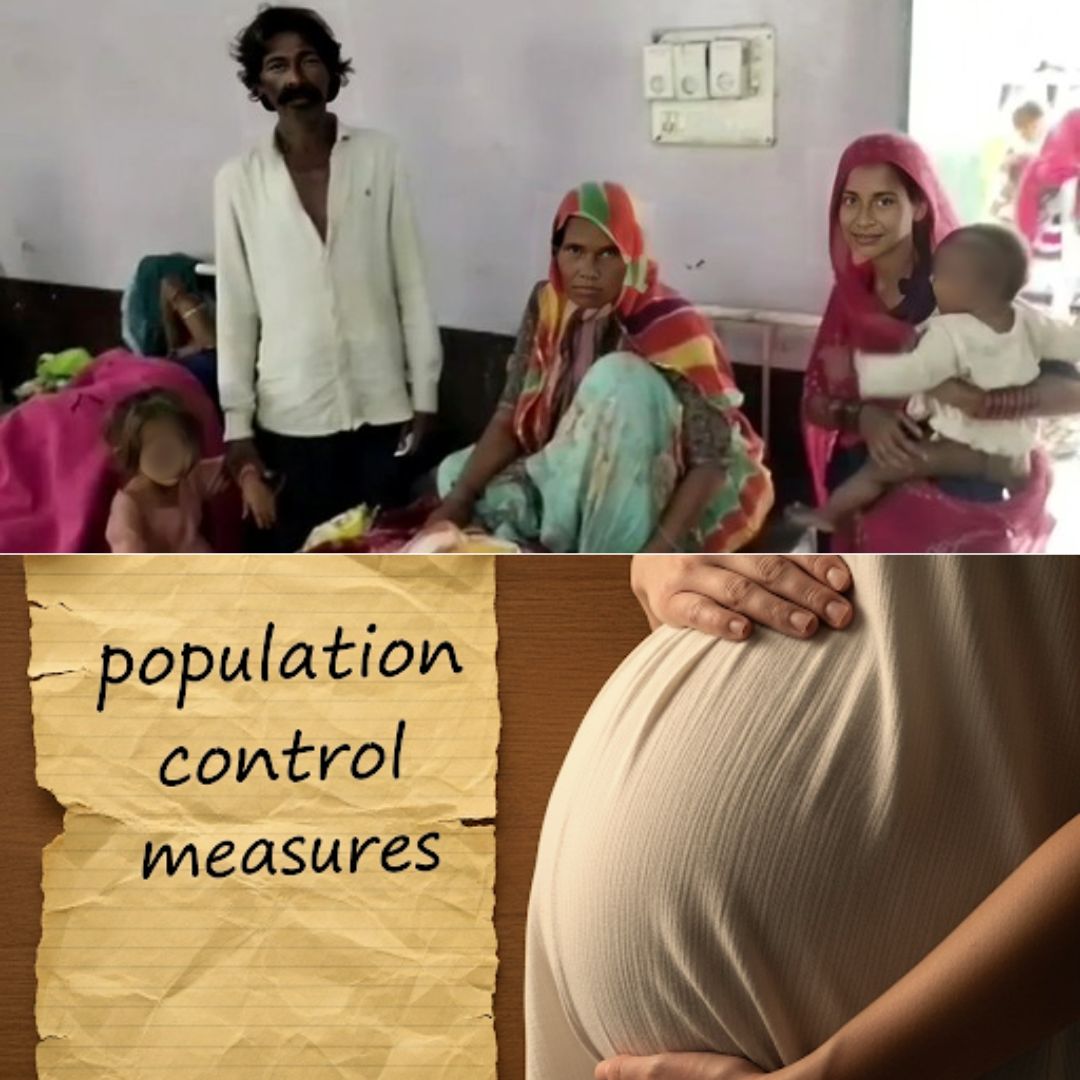A 55-year-old tribal woman named Rekha Kalbelia from Jhadol village in Udaipur, Rajasthan, recently gave birth to her 17th child, a rare case that has drawn significant attention to population control and maternal health issues in the region.
Rekha’s case has prompted the Rajasthan health department to launch an investigation into the underlying causes contributing to such high fertility rates among tribal communities, raising concerns about access to healthcare, family planning, and socio-economic challenges.
Family and Health Realities
Rekha Kalbelia, wife of Kavara Ram Kalbelia, has faced a lifetime of repeated pregnancies, with 17 children born so far. While 12 of these children, seven sons and five daughters, are alive, five died shortly after birth. Presently, Rekha is not only a mother but also a grandmother, as several of her children are married and have families of their own. Despite the large family, they live in extreme poverty, surviving by collecting scrap, with no family member having received formal education.
The financial struggles are acute; Kavara disclosed that he had to take loans at high interest rates to meet expenses, including weddings, which further strain their resources. Medical staff noted the significant health risks Rekha faced with multiple pregnancies, especially at an advanced age, as her uterus becomes increasingly fragile. Fortunately, her latest delivery proceeded without complications, but doctors remain concerned about such cases showing systemic gaps in healthcare outreach and education.
Government Response and Socio-Economic Context
The birth reflects broader challenges faced by tribal populations in southern Rajasthan, where high fertility rates persist despite government schemes and family planning initiatives. The Rajasthan health department emphasizes not only the need to investigate this particular case but also to evaluate the reach and efficacy of existing family welfare programmes in tribal areas.
Officials have voiced concerns about the insufficient penetration of family planning awareness and demand a stronger focus on educating and motivating communities about reproductive health and contraception. Additionally, socio-economic factors like poverty, illiteracy, and lack of land ownership complicate efforts to improve living standards and population control outcomes.
Although the government sanctioned housing under schemes like the PM Awas Yojana, many tribal families, including Rekha’s, lack proper homes and continue to live in vulnerable conditions. This case has served as a wake-up call to re-examine policies and reinforce sustainable, culturally sensitive population control measures for tribal regions.
Population control is crucial for sustainable development, reducing poverty, ensuring adequate resources, and protecting the environment for future generations. It helps avoid overpopulation pressures on food, water, housing, and healthcare systems. Proper population management through education, family planning, and contraception improves quality of life, creates employment opportunities, and reduces environmental pollution and global warming impacts, ultimately fostering balanced social and economic growth worldwide.
The Logical Indian’s Perspective
This incident highlights the complex interplay between health, poverty, cultural traditions, and women’s autonomous reproductive rights in underserved communities. While respecting cultural contexts and family choices, it is paramount to foster compassionate, informed dialogues around maternal health, access to quality healthcare, and family planning education.
The Logical Indian believes that effective social change requires empathy, community involvement, and support mechanisms that empower women to make informed reproductive decisions safely. By promoting kindness and respect alongside sustainable development efforts, society can help break cycles of poverty and improve health outcomes for families like Rekha’s.













